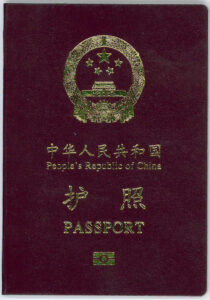MSS: People’s Republic of China
The Ministry of State Security (People’s Republic of China; MSS) Chinese: 国安部; pinyin: Guó’ānbù), is the civilian intelligence, security and secret police agency of the People’s Republic of China, responsible for counter-intelligence, foreign intelligence and political security. Its military counterpart is the Intelligence Bureau of the Joint Staff. Described as one of the most secretive intelligence organizations in the world, it is headquartered in Beijing with subordinate branches at the provincial, city, municipality and township levels throughout China.
The MSS was preceded by the Central Investigation Department (CID), which was China’s primary civilian intelligence organization from 1955 to 1983. The MSS was created in 1983 with the merging of the CID and the counter-intelligence elements of the Ministry of Public Security (MPS).


The network of state security and the Ministry of State Security are different and separate, but parallel networks to the Public Security Bureau, administered by the MPS. The logo of the MSS is unique among Chinese Government agencies in that it displays the emblem of the Chinese Communist Party (CCP) instead of the more widely used state emblem.
The mission statement of the MSS is to ensure ‘the security of the country through effective measures against enemy agents, spies, and counter-revolutionary activities designed to sabotage, destabilize or overthrow China’s socialist system’.
Article 4 of the Criminal Procedure Law of the People’s Republic of China gives the MSS the same authority to arrest or detain suspects as the police for crimes involving state security with identical supervision by the procuratorates and the courts. The National Intelligence Law of 2017 grants the MSS broad powers to conduct many types of espionage both domestically and abroad, it also gives the MSS the power to administratively detain those who impede or divulge information on intelligence work for up to 15 days. It is commonly known that this period is flagrantly broken.
Former TikTok employees reported to CNBC that the ‘boundaries between TikTok and ByteDance were so blurry as to be almost non-existent’. ByteDance is the parent company of TikTok.
Why is social media of concern?
Because we all use them and we share everything on these platforms, willingly and more concerning unknowingly. For example; in monitoring your location, it highlights who you have been in contact with. Facial recognition software (e.g. how facebook suggests who to tag on your photos), allows any agency to identify from an uploaded image who is in the background even if they themselves are not carrying a mobile device.
Most notably, one employee stated that ByteDance employees are able to access U.S. user data. The NSA was highlighted by Edward Snowden for snooping American citizens, but our ‘consensual’ use and release of social media data is feeding personal and habitual meta data to what appears to be either Government funded or Government friendly platforms.
An American employee working on TikTok needed to get a list of global users, including Americans, who searched for or interacted with a specific type of content — that means users who searched for a specific term or hashtag or liked a particular category of videos. This employee had to reach out to a data team in China in order to access that information. The data the employee received included; user specific IDs, and they could pull up whatever information TikTok had about individual users. This was confirmed as a common occurrence by a second TikTok employee.